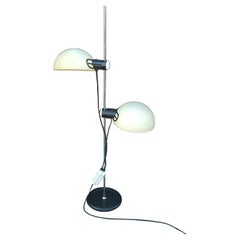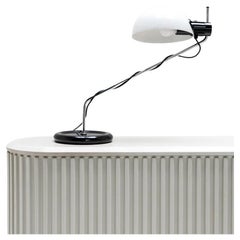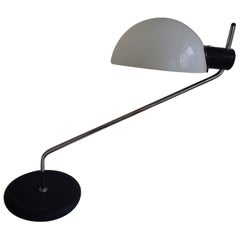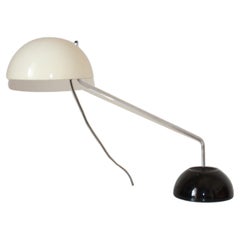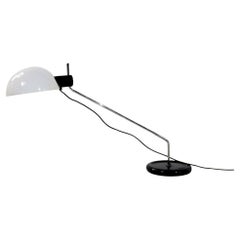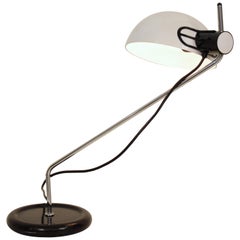Guzzini Libellula
Vintage 1970s Slovenian Mid-Century Modern Floor Lamps
Chrome
Vintage 1970s Italian Table Lamps
Metal
Vintage 1970s Italian Modern Table Lamps
Chrome
Vintage 1970s Italian Mid-Century Modern Table Lamps
Iron
Recent Sales
Vintage 1970s Italian Mid-Century Modern Table Lamps
Metal
Vintage 1970s Italian Mid-Century Modern Table Lamps
Metal
Vintage 1970s Italian Mid-Century Modern Table Lamps
Metal
People Also Browsed
Vintage 1950s Italian Mid-Century Modern Chairs
Chrome
21st Century and Contemporary American Wall Lights and Sconces
Brass, Metal
21st Century and Contemporary Italian Wall Lights and Sconces
Metal
21st Century and Contemporary Mexican Mid-Century Modern Table Lamps
Textile, Wood, Linen, Fiberglass
21st Century and Contemporary Italian Modern Sofas
Metal
Vintage 1970s Italian Mid-Century Modern Chairs
Metal
Vintage 1950s Finnish Mid-Century Modern Shelves
Birch, Mirror
Vintage 1930s Swedish Art Deco Chairs
Oak
Mid-20th Century American Mid-Century Modern Cabinets
Stainless Steel
Vintage 1950s American Modern Dressers
Metal
21st Century and Contemporary French Mid-Century Modern Wall Lights and ...
Metal, Aluminum
2010s American Organic Modern Coffee and Cocktail Tables
Hardwood, Walnut
Vintage 1950s French Mid-Century Modern Cabinets
Wood, Oak
1990s Swedish Mid-Century Modern Lounge Chairs
Metal
Vintage 1970s Swedish Mid-Century Modern Lounge Chairs
Fabric, Teak
Vintage 1960s Italian Mid-Century Modern Chairs
Beech, Plywood
Finding the Right Table-lamps for You
Well-crafted antique and vintage table lamps do more than provide light; the right fixture-and-table combination can add a focal point or creative element to any interior.
Proper table lamps have long been used for lighting our most intimate spaces. Perfect for lighting your nightstand or reading nook, table lamps play an integral role in styling an inviting room. In the years before electricity, lamps used oil. Today, a rewired 19th-century vintage lamp can still provide a touch of elegance for a study.
After industrial milestones such as mass production took hold in the Victorian era, various design movements sought to bring craftsmanship and innovation back to this indispensable household item. Lighting designers affiliated with Art Deco, which originated in the glamorous roaring ’20s, sought to celebrate modern life by fusing modern metals with dark woods and dazzling colors in the fixtures of the era. The geometric shapes and gilded details of vintage Art Deco table lamps provide an air of luxury and sophistication that never goes out of style.
After launching in 1934, Anglepoise lamps soon became a favorite among modernist architects and designers, who interpreted the fixture as “a machine for lighting,” just as Le Corbusier had reimagined the house as “a machine for living in.” The popular task light owed to a collaboration between a vehicle-suspension engineer by the name of George Carwardine and a West Midlands springs manufacturer, Herbert Terry & Sons.
Some mid-century modern table lamps, particularly those created by the likes of Joe Colombo and the legendary lighting artisans at Fontana Arte, bear all the provocative hallmarks associated with Space Age design. Sculptural and versatile, the Louis Poulsen table lamps of that period were revolutionary for their time and still seem innovative today.
If you are looking for something more contemporary, industrial table lamps are demonstrative of a newly chic style that isn’t afraid to pay homage to the past. They look particularly at home in any rustic loft space amid exposed brick and steel beams.
Before you buy a desk lamp or table lamp for your living room, consider your lighting needs. The Snoopy lamp, designed in 1967, or any other “banker’s lamp” (shorthand for the Emeralite desk lamps patented by H.G. McFaddin and Company), provides light at a downward angle that is perfect for writing, while the Fontana table lamp and the beloved Grasshopper lamp by Greta Magnusson-Grossman each yield a soft and even glow. Some table lamps require lampshades to be bought separately.
Whether it’s a classic antique Tiffany table lamp, a Murano glass table lamp or even a bold avant-garde fixture custom-made by a contemporary design firm, the right table lamp can completely transform a room. Find the right one for you on 1stDibs.
Read More
This Paavo Tynell Chandelier Is a Radiant Bouquet
The alluring pendant light exemplifies the designer’s winsome mid-career work.
Why Is Italy Such a Hotbed of Cool Design?
Patrizio Chiarparini of Brooklyn’s Duplex gallery sheds light on the lasting legacy of Italy’s postwar furniture boom.
See How New York City Designers Experiment on Their Own Homes
There are many lessons to be learned from the lofts, apartments and townhouses of architects and decorators in Manhattan and beyond.
Jeff Andrews Captures Old Hollywood Glamour in His Cinematic Spaces
Having created extravagant homes for reality TV’s biggest stars, the designer is stepping into the spotlight with his first book.
New Orleans’ Lee Ledbetter Makes Design Magic by Mixing Past and Present
The Louisiana-born and -bred architect talks to 1stdibs about the art of making timeless places that matter.
Desert Modern Designer Arthur Elrod Finally Gets His Day in the Sun
The Palm Springs interior decorator developed a mid-century style that defined the vacation homes of celebrities and other notables, including Bob Hope and Lucille Ball.
From the Hamptons to Palm Springs, FormArch’s Homes Embody Both Comfort and Cool
The houses from this New York studio cloak modernist tendencies within what are often more traditional trappings.
8 Mid-Century Lighting Makers
In the market for a fantastic fixture from the 1940s, ’50s or ’60s? Here are some names to know.
